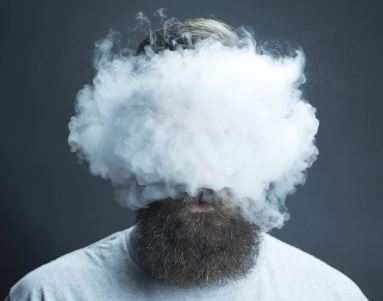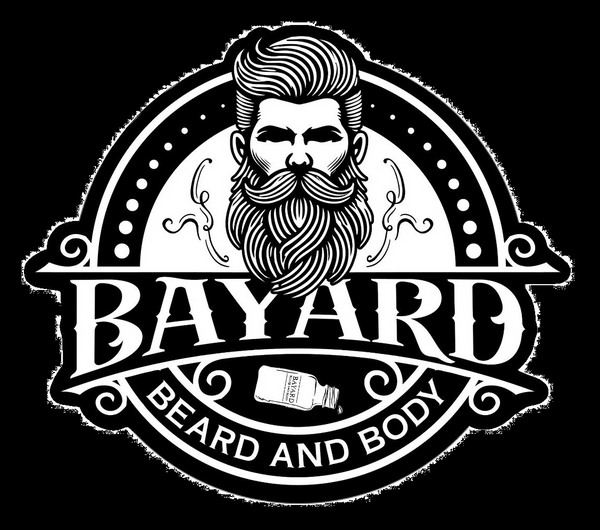
Negative Effects of Smoking on Beard Growth
Share
Smoking is a well-known health hazard, impacting various bodily systems and functions.
One of the less discussed but significant effects is its impact on beard growth. Men who smoke may find it harder to grow a full, healthy beard due to several physiological reasons. This article delves into the specific ways smoking hampers beard growth, backed by scientific evidence and expert opinions.
Reduced Blood Circulation
Healthy blood circulation is essential for delivering nutrients and oxygen to hair follicles. Smoking constricts blood vessels, reducing blood flow to the skin and hair follicles. This diminished blood supply starves hair follicles of the necessary nutrients and oxygen, leading to weaker, slower-growing beard hair. Over time, this can cause follicles to enter a dormant phase prematurely, stunting beard growth and contributing to patchiness.
Decreased Collagen Production
Collagen is a vital protein that supports hair and skin health. It provides structural support to the skin and helps maintain the strength and integrity of hair follicles. Smoking inhibits collagen production, leading to weaker hair shafts and more brittle beard hair. Reduced collagen levels also mean that the skin underlying the beard becomes less resilient and more prone to damage, affecting overall beard health.
Hormonal Imbalance
Testosterone plays a crucial role in hair growth, including beard hair. Smoking can disrupt the balance of hormones in the body, including testosterone. Studies have shown that smoking can lower testosterone levels, which directly affects beard growth. A deficiency in testosterone can lead to slower growth rates and less dense facial hair.
Oxidative Stress
Smoking introduces a significant number of free radicals into the body. Free radicals are unstable molecules that can damage cells, proteins, and DNA through a process called oxidative stress. Hair follicles are particularly susceptible to this damage, which can hinder their ability to produce healthy hair. Oxidative stress can lead to inflammation of the hair follicles, further impeding beard growth.
Nutrient Depletion
Smoking depletes the body of essential nutrients, including vitamins and minerals crucial for hair growth. For instance, smoking reduces the levels of vitamin C, which is important for collagen synthesis and overall skin health. It also affects the absorption of other vital nutrients like vitamin E, zinc, and biotin, all of which play key roles in maintaining healthy hair growth.
Impaired Immune Function
The immune system plays a role in maintaining the health of hair follicles. Smoking weakens the immune system, making the body more susceptible to infections and diseases that can affect the skin and hair follicles. A compromised immune system can lead to conditions like folliculitis, where hair follicles become inflamed and damaged, further hindering beard growth.
Damage to Hair Follicles
The toxins in cigarette smoke can cause direct damage to hair follicles. Studies have shown that exposure to cigarette smoke can lead to the destruction of the outer layer of hair follicles, impeding their function and health. This damage can be irreversible, leading to permanent reduction in beard growth.
Premature Aging
Smoking accelerates the aging process of the skin, which includes the skin beneath your beard. Premature aging caused by smoking can lead to wrinkles, reduced skin elasticity, and other skin issues that affect beard growth. The aging skin loses its ability to support healthy hair follicles, resulting in thinner, weaker beard hair.
Smoking has a multitude of negative effects on beard growth, from reducing blood circulation and collagen production to causing hormonal imbalances and oxidative stress. These effects combine to create an environment where healthy beard growth is severely hampered. For those looking to grow a thick, healthy beard, quitting smoking is a crucial step. By eliminating the intake of harmful toxins, you can improve your overall health, including the health of your beard. The benefits of quitting smoking extend beyond improved beard growth, contributing to better skin health and a lower risk of numerous health conditions.
How Beard Oil Helps Combat the Effects of Smoking on a Beard
Smoking negatively impacts beard growth and overall beard health through various mechanisms, including reduced blood circulation, decreased collagen production, hormonal imbalance, oxidative stress, nutrient depletion, impaired immune function, damage to hair follicles, and premature aging. Using beard oil can help mitigate some of these adverse effects. Here’s how:
Improving Blood Circulation
Beard oils typically contain essential oils that can improve blood circulation when massaged into the skin. Ingredients like peppermint oil and eucalyptus oil have vasodilating properties, which help enhance blood flow to hair follicles. Better circulation ensures that hair follicles receive the necessary nutrients and oxygen, promoting healthier beard growth.
Supporting Collagen Production
Beard oils often contain ingredients rich in vitamins and antioxidants, such as vitamin E and fatty acids. These components support skin health and collagen production. For instance, oils like argan oil and jojoba oil are known for their skin-nourishing properties, helping maintain the structural integrity of hair follicles and supporting robust beard growth.
Balancing Hormones
While beard oil cannot directly influence testosterone levels, it can help create a healthier skin environment that supports beard growth. Ingredients like jojoba oil mimic the skin’s natural sebum, helping to regulate oil production and maintain a balanced skin environment, which is beneficial for beard growth.
Reducing Oxidative Stress
Many beard oils contain antioxidants that help neutralize free radicals, thereby reducing oxidative stress on hair follicles. Oils like grapeseed oil, rich in vitamin E, help protect hair follicles from damage caused by oxidative stress. This protection can help maintain the health and vitality of beard hair.
Nutrient Supply
Beard oils provide essential nutrients directly to the skin and hair follicles. Oils like castor oil, argan oil, and sweet almond oil are rich in vitamins and fatty acids that nourish hair follicles. This nutrient boost can compensate for the nutrient depletion caused by smoking, promoting healthier and stronger beard growth.
Enhancing Immune Function
Some beard oils contain anti-inflammatory and antimicrobial properties that help support a healthy skin environment. Ingredients like tea tree oil and lavender oil have these properties and can help prevent infections and inflammations of hair follicles, which are more likely to occur in smokers due to their compromised immune systems.
Repairing Damaged Hair Follicles
Beard oils can help repair and strengthen damaged hair follicles. Oils such as argan oil and coconut oil penetrate the hair shaft, providing deep conditioning and repair. This can help counteract the direct damage smoking does to hair follicles, promoting healthier and more resilient beard hair.
Preventing Premature Aging
Many beard oils are formulated with ingredients that help combat premature aging of the skin. Antioxidant-rich oils like jojoba oil and argan oil help maintain skin elasticity and reduce the appearance of wrinkles. By keeping the skin beneath the beard healthy and youthful, these oils support a better environment for beard growth.
While beard oil cannot completely counteract the negative effects of smoking, it can significantly improve the health and appearance of your beard by providing essential nutrients, improving circulation, reducing oxidative stress, and supporting collagen production. For smokers, using high-quality beard oil can be a beneficial part of a beard care regimen, helping to mitigate some of the damage caused by smoking and promoting a healthier, fuller beard.













